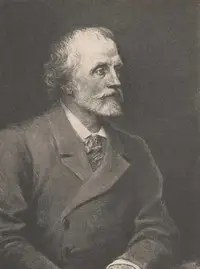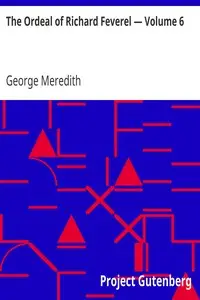"The Complete Project Gutenberg Works of George Meredith" by George Meredith is a gathering of the author's extensive writings. It is probably from Project Gutenberg and gives a broad look at Meredith's storytelling, with novels, plays, and poetry all included to show his impact on writing. Notably, it contains "The Shaving of Shagpat," a story about a barber named Shibli Bagarag, who, as the nephew of Baba Mustapha, finds himself down on his luck until an old woman tells him he's destined for something more. She sends him on an adventure to find Shagpat, a big figure known for his long hair. The story begins with Shibli's journey and blends humor with fantasy as he makes his way through the complicated city of Shagpat, teasing the main conflict and Shibli's thrilling future.

Complete Project Gutenberg Works of George Meredith
By George Meredith
A broke barber embarks on a magical quest to confront a hairy legend, changing his life forever.
Summary
About the AuthorGeorge Meredith was an English novelist and poet of the Victorian era. At first, his focus was poetry, influenced by John Keats among others, but Meredith gradually established a reputation as a novelist. The Ordeal of Richard Feverel (1859) briefly scandalised Victorian literary circles. Of his later novels, the most enduring is The Egoist (1879), though in his lifetime his greatest success was Diana of the Crossways (1885). His novels were innovative in their attention to characters' psychology, and also portrayed social change. His style, in both poetry and prose, was noted for its syntactic complexity; Oscar Wilde likened it to "chaos illumined by brilliant flashes of lightning". Meredith was an encourager of other novelists, as well as an influence on them; among those to benefit were Robert Louis Stevenson and George Gissing. Meredith was nominated for the Nobel Prize in Literature seven times.
George Meredith was an English novelist and poet of the Victorian era. At first, his focus was poetry, influenced by John Keats among others, but Meredith gradually established a reputation as a novelist. The Ordeal of Richard Feverel (1859) briefly scandalised Victorian literary circles. Of his later novels, the most enduring is The Egoist (1879), though in his lifetime his greatest success was Diana of the Crossways (1885). His novels were innovative in their attention to characters' psychology, and also portrayed social change. His style, in both poetry and prose, was noted for its syntactic complexity; Oscar Wilde likened it to "chaos illumined by brilliant flashes of lightning". Meredith was an encourager of other novelists, as well as an influence on them; among those to benefit were Robert Louis Stevenson and George Gissing. Meredith was nominated for the Nobel Prize in Literature seven times.













